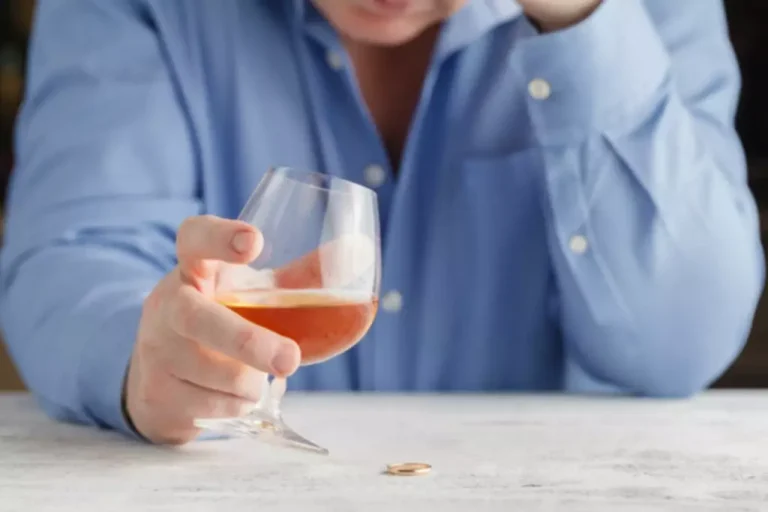1xbet Como Funciona? Entenda Tudo Sobre Esta Casa 202
8 septembre 2022Giris Və Qeydiyyat, Bonuslar Bukmeker Veb Saytında Mosbet
8 septembre 2022
A score of 4 for men and 3 for women or more for each is considered predictive of potential alcohol abuse. Commonly, the likelihood of a person having an alcohol use disorder is directly proportional to the highest score on the test. Our finding that those who have trouble falling asleep were more likely to be persistent heavy drinking suggests that they may be using alcohol as a sedative. The Whitehall II participants were asked about reasons for change in drinking over the last 10 years and an increase in consumption was cited as a means to help get to sleep was by 6% of men and 5% of women21.
Insomnia treatment in the context of alcohol use disorder: A systematic review and meta-analysis
- It is, rather, the symptoms of withdrawal taking a physical and mental toll on the person quitting that pushes them back.
- For instance, we used self-reported alcohol consumption data and self-reported sleep data and therefore these measures may be at risk of reporting bias.
- However, even small amounts of alcohol can have noticeable effects in some people.
- The recruitment sites and a description of these subjects have been reported previously (14).
The major issue is that people may not feel the negative effects at first. The solution seems simple; they have another beer, another glass of wine, another shot. The more they take, the more they feel they need, and soon, they’ve built a dependency on alcohol in order to feel relaxed.

How does alcohol affect people with insomnia?
Sleep deprivation due to alcohol consumption can exacerbate performance impairment and daytime sleepiness. Drinking alcohol can affect the quality and length of your sleep, alcohol insomnia leading to sleep disorders — such as insomnia and sleep apnea — in some. In summary, the preponderance of studies report subjective and objective increase in sleep onset latency and sleep fragmentation with consequently decreased TST in actively drinking subjects with AD. In summary, moderate doses of alcohol may decrease the amount of REM sleep through the night.
Alcohol Withdrawal and Insomnia
REM sleep findings have been inconsistent during this phase with some studies reporting a decreased REM sleep latency and increased REM % (Gillin et al., 1990a, Williams and Rundell, 1981) whereas other studies did not (Gillin et al., 1990b, Le Bon et al., 1997). It is to be noted that individuals in early recovery may overestimate their subjective SOL but underestimate their WASO, as compared to their PSG estimated indices (Conroy et al., 2006b). Alcohol is one of the most commonly used psychoactive substances in the community. Nonetheless, alcohol disrupts sleep through multiple mechanisms, such as disrupting electrophysiologic sleep architecture, triggering insomnia, and contributing to abnormalities of circadian rhythms and short sleep duration (SSD) in cross-sectional studies. Alcohol also increases breathing-related sleep events such as snoring and oxygen desaturation, especially in those with pre-existing problems. Emerging data demonstrate that insomnia may co-exist with SSD and circadian abnormalities.
- KBC and LAJSS reviewed and provided feedback on potentially relevant records.
- Older men who consume alcohol are more likely to have a worse sleep profile, characterized by waking tired and waking several times during the night.
- Simply select your manager software from the list below and click Download.For more information or tips please see ‘Downloading to a citation manager’ in the Help menu.
- Over the past two decades, behavioral interventions have been recommended as the first line of treatment for insomnia in adults (Schutte-Rodin et al., 2008; Siebern and Manber, 2011).
- During the final hours of sleep when alcohol is metabolized by the body, it can have a disruptive effect on sleep, causing frequent waking and fragmented sleep.
How to sleep better after drinking alcohol

Drinking alcohol can also increase your tolerance, causing you to drink more to experience its sedative effects. Treating a co-occurring disorder without treating someone’s alcohol dependency, and vice versa, can mean setting up a possible relapse before treatment has truly begun. Rarely is it the cravings of alcohol that drive those in recovery to relapse. It is, rather, the symptoms of withdrawal taking a physical and mental toll on the person quitting that pushes them back.
Treatment for Insomnia
In 2012–2013, 70.9% of the original cohort who were still alive (age range 61–81 years), participated in phase 11. Men consumed more alcohol than women with 15.7% consuming 21 or more units per week compared to only 2.4% of women (Table 1). 30.5% men and 12.8% women scored more than 5 on the AUDIT score, indicating hazardous drinking.
In brief, this model posits that sleep is a function of two independent mechanisms, namely homeostatic sleep drive and circadian rhythmicity. A mismatch between the normally synergistic circadian and homeostatic mechanisms may also lead to circadian rhythm sleep disorders. There is a higher prevalence of insomnia in people with ADHD and AUD, but consuming alcohol to manage insomnia generally worsens sleeplessness. Symptoms of co-occurring disorders may heighten when you stop drinking alcohol. This typically happens to people who use alcohol to cope with the effects of mental health disorders.
Alcohol and its effect on sleep continuity in healthy subjects

It also causes changes to blood vessels in the nose, leading to greater airway resistance in the nasal passages. Keep in mind that for people with AUD, sleeping issues may persist through the withdrawal phase. Researchers from a 2020 study concluded that those with AUD need at least 5–9 months of abstaining from drinking in order to normalize their sleep duration and rhythm, so try to be patient with yourself during https://ecosoberhouse.com/ this time. During alcohol withdrawal, it’s crucial to address both the physical symptoms of withdrawal and any underlying mental health conditions that may contribute to insomnia, such as anxiety or depression. This means people with insomnia have an increased risk of alcohol and substance use disorders.
Alcohol and Insomnia Signs, Symptoms and Treatment

A multidisciplinary team of health experts collected and analysed the data collected through the questionnaires administered regarding alcohol and sleep habits. The most common drinking typologies over the three decades of observation were stable moderate drinkers (21.2%) and unstable moderate (29.2%). Women were more likely to report being former drinkers than men (24.8% and 12.8% respectively) (Table 2).
How Alcohol Affects People With Insomnia
- Subjective and objective sleep related disturbances persist for up to 3 years into sobriety as demonstrated by cross-sectional and longitudinal studies.
- Anyone experiencing insomnia should speak with a doctor to learn more about what treatments may work best for them.
- Not being able to sleep at all for several days is uncharacteristic of alcohol dependence except for extreme cases of alcohol withdrawal, such as delirium tremens that occur in only about 5% of alcohol-dependent patients (38).
- The association of alcohol dependence with insomnia may be bidirectional in nature9.
Having a beverage containing alcohol in the evening from time to time may slightly disrupt sleep, but consuming alcohol for multiple nights in a row or every night carries a greater risk of insomnia. Studies have shown that short-term alcohol use can shorten the time it takes to fall asleep. Alcohol use and dependence appear to interfere with circadian rhythms—biological patterns that operate on a 24-hour clock. Evidence suggests that consuming alcohol may decrease the body’s sensitivity to cues, like daylight and darkness, which trigger shifts in body temperature and secretion of the sleep hormone melatonin. These fluctuations play a vital role in the sleep-wake cycle, and when they are weakened—or absent—a person may feel alert when they want to sleep and sleepy when they want to be awake. If you are one of the nearly two thirds of Americans who drink alcohol, chances are, you’ve had a drink in the hours before bedtime.
